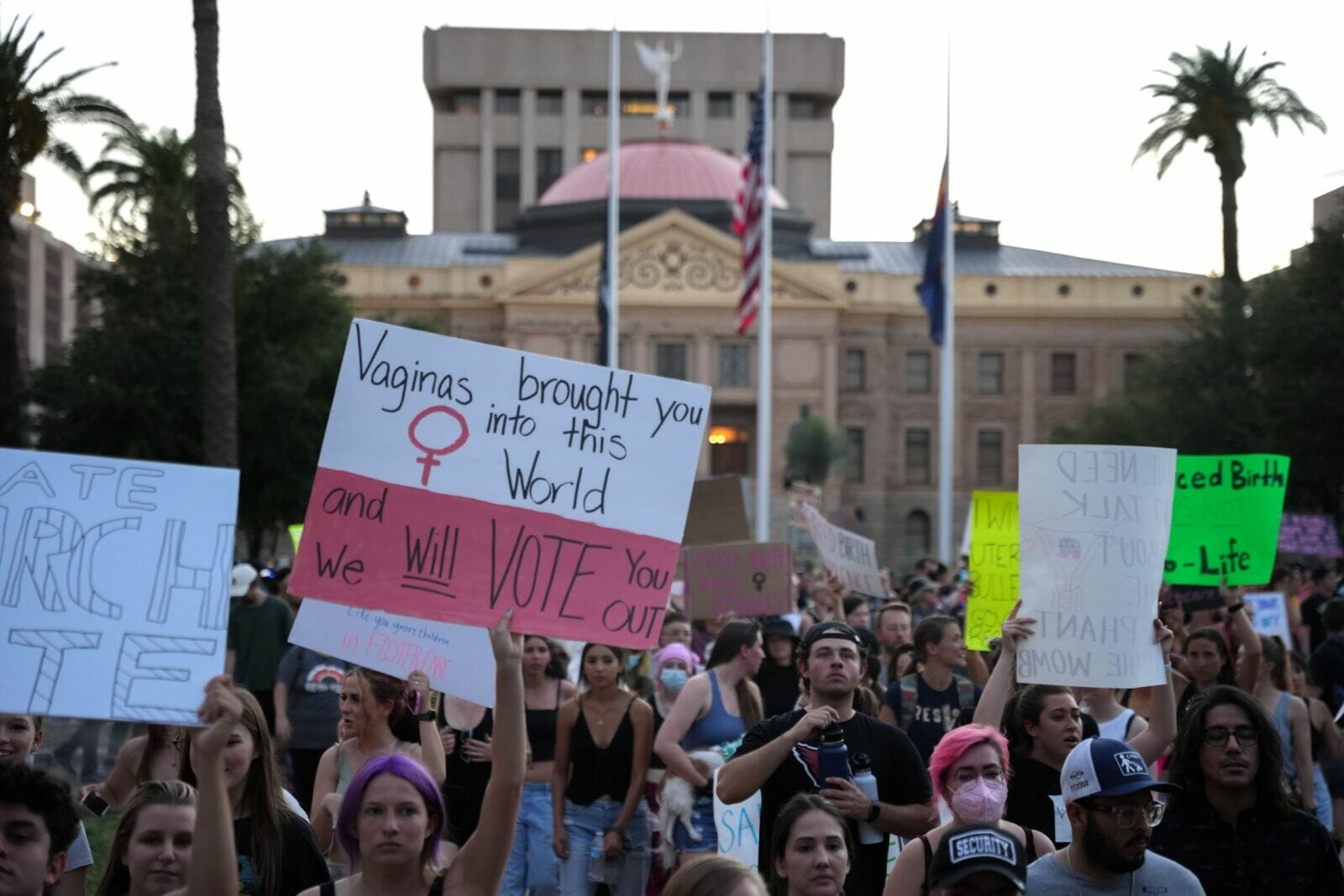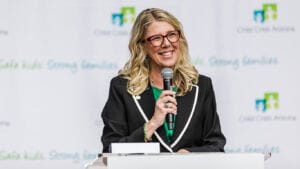In a post-Roe world, those seeking an abortion will have to live in, or travel to, a state where it’s legal. But those who forgo the procedure may need help with an unplanned pregnancy.
Activists and organizations on both sides of the abortion debate are figuring out how best to help pregnant people after the U.S. Supreme Court overturned the landmark 1973 ruling that had legalized abortion across America.
In states with abortion restrictions on the books, procedures ground to a halt after the Friday ruling.
READ ALSO: Planned Parenthood Arizona stops abortions after Roe v. Wade overturned
Planned Parenthood Arizona immediately stopped performing abortions at its seven clinics statewide. In a video conference call Friday, Dr. Jill Gibson, the group’s medical director, described how staff had to call patients to explain that appointments had been canceled. Others had already arrived for procedures.
“There was complete dismay,” she said.
Gibson stressed that those most likely to be left to contend with an unplanned or unwanted pregnancy are people who have neither the means nor ability to travel for an abortion – “those who already face discriminatory and systemic obstacles to health care, particularly our Black, Indigenous and communities of color, people with disabilities, people who live far from the city, young people, poor people, undocumented people.”
“My heart honestly is breaking, because this decision will cause immense suffering for women and for their families,” she said. “We will see desperation.”
A complicated landscape
More than 76% of women 18 to 49 years old are at risk for unintended pregnancies, according to the Centers for Disease Control and Prevention. And the vast majority of people seeking abortion care are unmarried and poor, the agency reports.
People of color also are disproportionately represented, with Black and Hispanic people seeking abortions at higher rates than white people.
With Roe no longer the law of the land, “26 states are certain or likely to ban abortion,” according to the Guttmacher Institute, a research organization that supports abortion rights. Those states either have old bans still on the books – as Arizona does – or so-called trigger laws to automatically outlaw abortion now that the high court has ruled.
Already, abortion bans have taken effect in states including Utah, South Dakota, Kentucky and Louisiana. Some bans stipulate exceptions in cases of rape or incest. Some, including Louisiana’s law, do not.
Arizona’s situation is less clear: In March, Gov. Doug Ducey signed into law a bill banning abortions after 15 weeks. That takes effect at the end of September. But there’s also a law from 1901 that bans abortion outright, except to save the life of the mother. Experts said the courts may have to weigh in to determine whether the old law can stand.
Practically speaking, however, abortion has ceased in Arizona and on a much larger level, with providers in many states stopping procedures over uncertainty around the legal landscape.
This new world order has prompted those who both support and oppose abortion to pledge to help people with unintended pregnancies navigate the situation and get the care they need.
Some organizations are working to provide financial help and transportation for those seeking an abortion in a state where it’s legal. At the same time, other groups are taking steps to help those who may carry their pregnancies to term.
‘Their lives matter’
Even before Roe was overturned, the Rev. Daniel Kanter, senior minister and CEO of First Unitarian Church of Dallas, was organizing trips to take impoverished women in need of abortions from Texas to New Mexico.
The effort began after Texas last fall made abortion illegal after six weeks gestation. Now, beginning 30 days after the Supreme Court’s June 24 ruling, all abortions will be illegal in Texas except to save the life of the mother.
Kanter told Cronkite News that so long as out-of-state travel for abortions remains legal, “we expect to continue as usual.”
“The motivation is knowing that the patients are going through all kinds of things, that these are the poorest people in our community – they’re mostly Black, brown and Indigenous women – and that they have dignity and their lives matter,” he said.
If those individuals can’t get abortions, he added, “their lives will get more difficult.”
“They’ll be poorer. In some cases, these births won’t work and they’ll hurt or kill the mother. … And as a clergy person, I can give some spiritual care and utilize my position to protect and serve these people.”
Abortion fundraising groups across the nation also have vowed to help women who want an abortion get to states where it’s legal.
Story by Adriana Gonzalez-Chavez, Cronkite News




